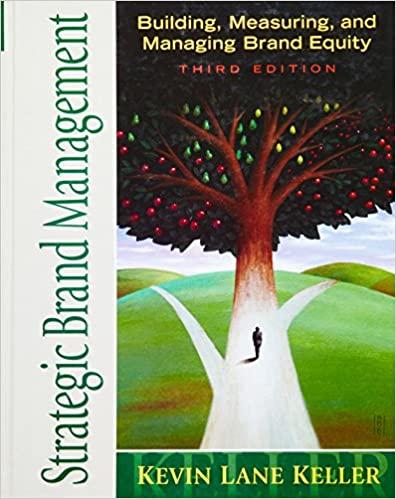Question
After receiving a full-time job offer to become a vice president for a rapidly expanding auto group, Jordan eagerly accepted. The company was quickly acquiring
After receiving a full-time job offer to become a vice president for a rapidly expanding auto group, Jordan eagerly accepted. The company was quickly acquiring dealerships, and Jordan believed that she'd be able to work closely with the C-suite on strategic development. The CEO promised Jordan autonomy to shape and implement the corporate direction, which she saw as a once-in-a-lifetime opportunity.
Jordan and her family jumped in with both feet her husband quit his job and they moved cross-country with their infant daughter so that Jordan could start her new position. Yet just one year later, Jordan's starry-eyed hopes had dissolved into disappointment. She resigned, and she and her family moved back to their original home. As her executive coach, Jordan shared with me that contrary to what she had expected, the CEO was almost entirely uninvolved and had no vision of what her role could be. "He thought he was giving me high autonomy, but I felt abandoned and uninvolved," she said.
Jordan's example of boomeranging back after taking a new job may seem extreme, yet statistics tell a different story. A Harris poll conducted for USA Today found that about one in five workers who quit their job wish they had remained in their old position, and only around a quarter of job switchers say they're satisfied enough with their new position to stay. Similarly, a recent study from The Muse found that almost three quarters of those surveyed reported that the new position or new company they quit their job for turned out to be "very different from what they were led to believe or thought it would be." Nearly half of these workers said they would try to get their old job back thanks to an occurrence.
The Muse calls "shift shock." This trend has been exacerbated by the Covid-19 pandemic, which caused a lot of people to rethink their priorities and made workers less likely to stick around in an unfulfilling job. Yet finding yourself mired in regret after taking a new job can be not only emotionally upsetting, but also expensive losing health benefits can tack an average of $541 per month onto your bills, and you might also have to dip into savings as you go through a new job hunt and interview process.
Q1: Do you think Jordan should have stayed in her job rather than leaving her job? Explain your answer (5 marks).
Q2: Using the job characteristics model, identify which core characteristics are present or absent in the job offered to Jordan (5 marks). What changes in job design would you recommend to management? (5 marks)
Step by Step Solution
There are 3 Steps involved in it
Step: 1

Get Instant Access to Expert-Tailored Solutions
See step-by-step solutions with expert insights and AI powered tools for academic success
Step: 2

Step: 3

Ace Your Homework with AI
Get the answers you need in no time with our AI-driven, step-by-step assistance
Get Started


